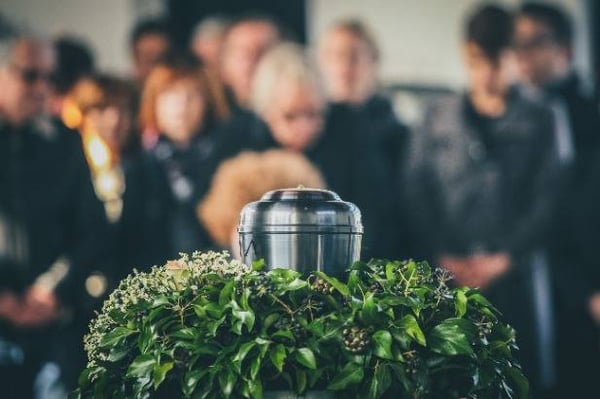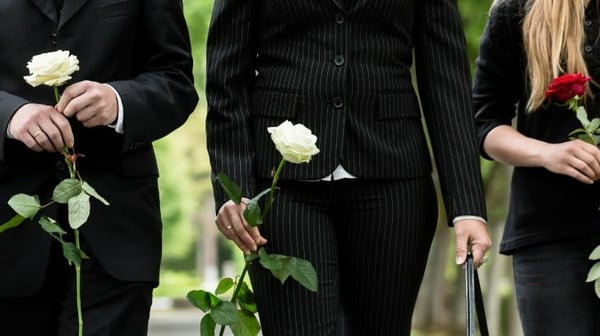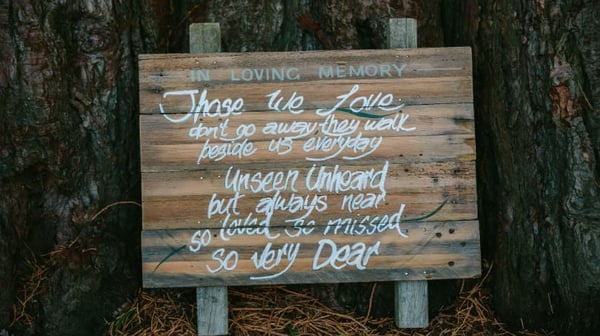What happens at a cremation?
Around 80% of people in the UK opt to have a cremation of some kind, but what does the service actually involve? In this guide we'll explore what happens at a cremation.

You may also be interested in....
A cremation is the process by which a deceased person's body is turned to ashes through exposure to intense heat in a cremation chamber.
A cremation service takes place at a crematorium and is an opportunity to honour the departed. While there are different ways of conducting the cremation order of service, it often includes mourners in attendance, music, and contributions from family or friends.
Every family will apply their own personal touch to proceedings, but here is a general overview of what happens at a traditional cremation service.
- The mourners arrive. Friends and family arrive at the crematorium and will often take a seat in the chapel before the coffin emerges. As we'll explore later, direct cremation services fo not include mourners.
- The service starts. The cremation order of service begins. It may include a eulogy, readings, funeral songs and other tributes from family and friends.
- The commital. Following the service, the coffin is 'committed' into the cremation chamber. Mourners may wish to pay their last respects.
- The mourners exit. As the cremation service end, attendees have an opportunity to offer their condolences to the bereaved, often to the accompaniment of music as they leave the chapel.
- The wake. Some people like to organise a wake following a cremation service. This gives family and friends the chance to share tributes over a bite to eat and drink.
A cremation service is similar in length to a burial funeral service. So, while there is no universally agreed length of time, a typical cremation service might last around 45 minutes.
The cremation itself often takes between one and three hours, depending on factors such as the type of coffin used.
Before a body is cremated, artificial items such as pacemakers, prosthetics and other medical devices will need to be removed. The deceased can usually be dressed in lightweight clothing if you wish.
When someone is cremated, the body burns alongside the coffin or shroud that encases it. According to UK law, a dead body must be covered in public, and using a coffin or shroud is considered more hygienic.
While cremations are more popular than burials in the UK, in truth the words 'cremation service' may mean different things to different people. Here are three types of cremation:
- Traditional cremation service. As we've covered, cremation ceremonies usually include gathered mourners and a cremation order of service. You can decide whether to have the body embalmed, where natural oils are used to preserve the body for longer and create a more comforting, life-like appearance for those saying goodbye.
- Direct cremation. A direct cremation is where there is no formal ceremony. It will exclude traditional funeral practices such as a hearse and procession, and the event is often unattended.
- Water cremation. A modern alternative to traditional cremation services is water cremation, also known as aquamation or alkaline hydrolysis. Water cremation is legal in the UK and involves the body being placed in a chamber with potassium hydroxide so that it decomposes without harmful emissions.
Few of us like to imagine a time when we're no longer around, but if you're thinking about your own funeral arrangements, you can learn more in our guide to cremations versus burials.
Find out more about our life insurance
More articles and guides

Writing a eulogy

How to save on funeral costs during the cost of living crisis

